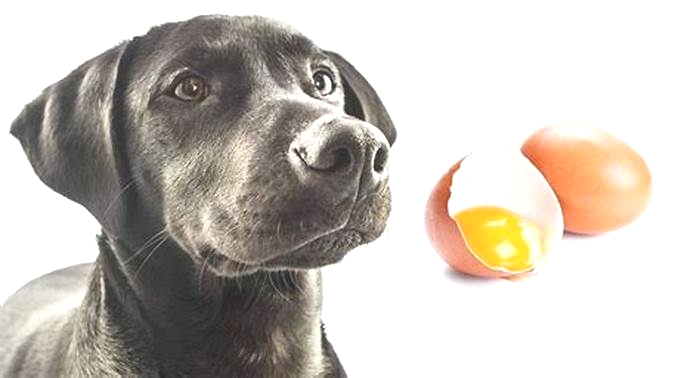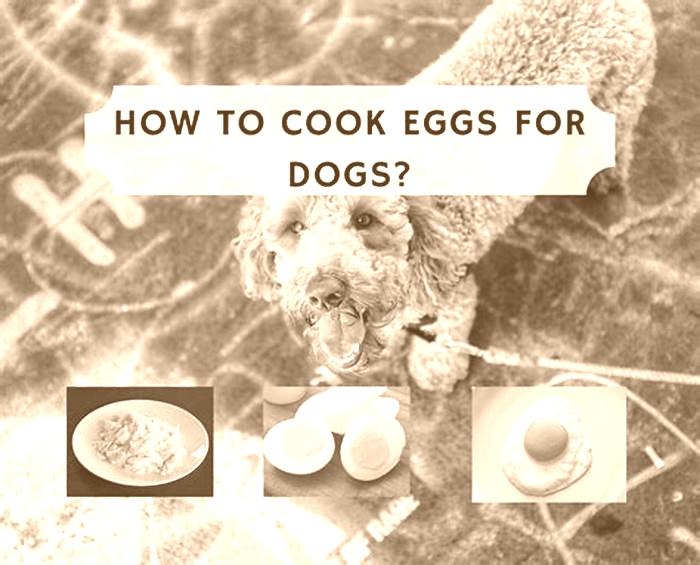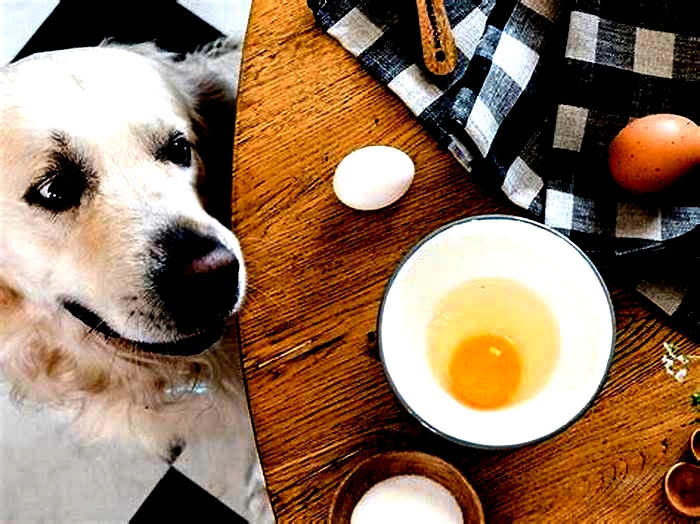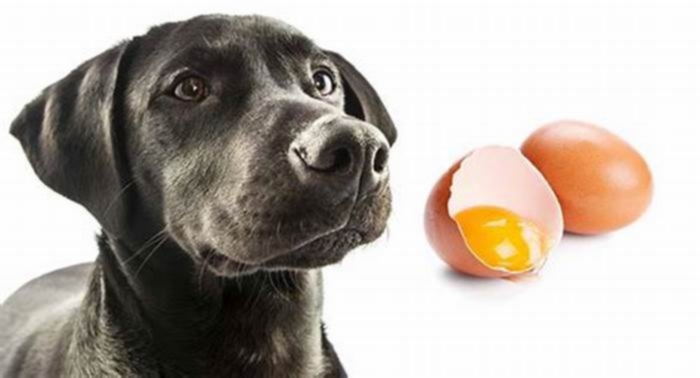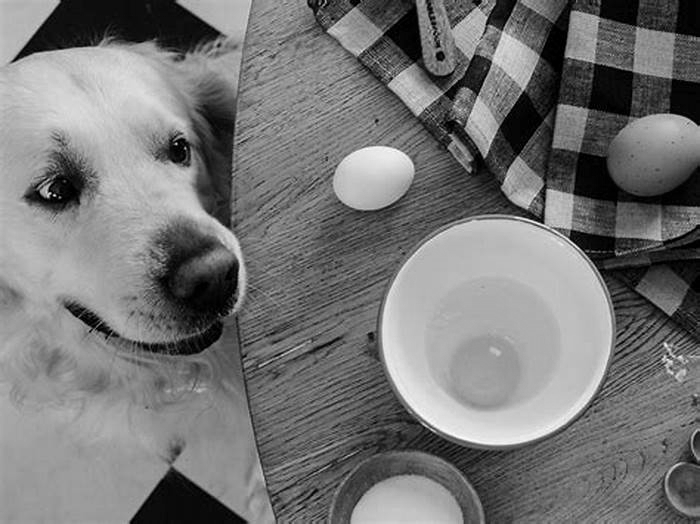Can dogs eat boiled eggs
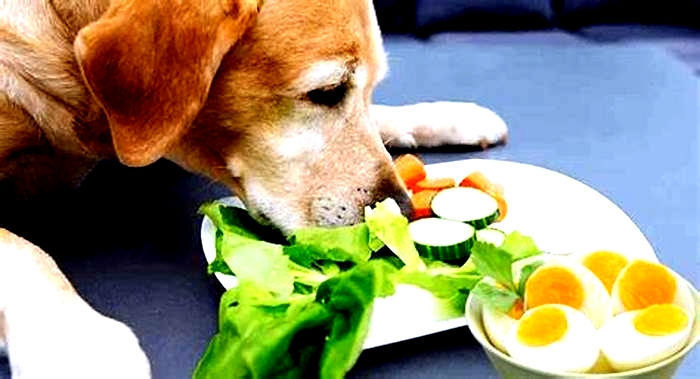
Can Dogs Eat Hard Boiled Eggs?
With a long list of human foods that we should never give our dogs, such as almonds, grapes, and chocolate, eggs are great for our pets.
Dogs have had eggs as part of their diet for a very long time. So the answer is YES dogs can eat hard-boiled eggs, and most dogs will love the taste, too.
Moreover, when serving your pooch eggs, boiling them until hard is the safest and most straightforward option.
 History shows that canines would even take eggs straight from the birds nests or chicken coops, even if, at present, most dogs do not have the same access to eggs as they have in the past. But while eggs are safe for dogs to eat, owners should know how to prepare eggs for their pups, the benefits of feeding a dog eggs, and any potential side effects or dangers.
History shows that canines would even take eggs straight from the birds nests or chicken coops, even if, at present, most dogs do not have the same access to eggs as they have in the past. But while eggs are safe for dogs to eat, owners should know how to prepare eggs for their pups, the benefits of feeding a dog eggs, and any potential side effects or dangers.
RECIPE:Homemade Dog Food with Eggs
How to Prepare Eggs for Your Dog
Even though dogs eat raw eggs, shells, and all, raw eggs are not the most practical way to feed your dog from a birds nest or chicken coup.
Feeding your dog a raw egg could be messy and potentially spread unwanted germs and bacteria, among other reasons mentioned below.
Preparing the egg by hard-boiling is the most foolproof and straightforward method for feeding eggs to your pet.
Making hard-boiled eggs is easy; follow these step-by-step instructions:
- Place the eggs in a pot.
- Cover the eggs with approximately one (1) inch of cold water.
- Bring the water to a boil on medium-high heat.
- Once the water has reached a spot, cover the pot and remove it from the heat.
- Allow the eggs to sit in the water for eight to ten (8-10) minutes.
- Drain the water and cool the eggs in an ice bath.
- Peel and discard the shell, or crush it and serve it with eggs.
The reason that hard boiling eggs for your dog are the suggested cooking method, instead of preparing them other ways (scrambled, over easy, over hard, etc.), is that it is the easiest and cleanest preparation method, and there is no need to add any extra fats, spices or other ingredients.
We tend to add extra stuff when we cook them using non-stick sprays, butter, oil, margarine, or salt, depending on the cooking method of the egg.
A hard-boiled egg cuts eggs into sizes that best fit your pups needs to serve your dog.
If you have a giant dog, you can cut the eggs into hearty chunks, or if you have a small dog, you can dice them into tiny pieces.
When feeding your dog eggs, you can give the pieces to them plain or put them in your dogs kibble as an additional source of protein.
Of course, if you do not want to feed your dog hard-boiled eggs but want them to receive the benefits listed below, you can poach or scramble the eggs, but remember not to add any additional ingredients.

The Benefits of Hard-Boiled Eggs for Dogs
Eggs are packed with nutrients. Like humans, there are many benefits that your dog can receive if they eat eggs. Eggs help your dog in the following four ways:
It promotes muscle development and helps repair damaged tissues.Eggs contain a high amount of quality protein to help your dog build muscle and repair any damaged tissues.
Settles uneasy stomachs.Eggs can help settle upset stomachs, so a hard-boiled egg can be a meal replacement or substitute if your dog has been ill or refuses to eat.
Good source of calcium, selenium, and riboflavin.Eggs promote strong, healthy bones because they contain the calcium that dogs need.
They also contain other vitamins and minerals that are essential to the overall health of your dog.
Excellent source of fatty acids and essential amino acids.Eggs are an excellent source of many essential amino acids and fatty acids.
By providing your dog with fatty acids and essential amino acids, you will help strengthen their hair and improve the quality and look of their coat.
If you want to use eggs as an occasional meal replacement or if your dog is sick, it is recommended to ask your veterinarian or a canine nutritionist how many eggs it would take to be a proper meal substitution.
Your vet or nutritionist will be able to give you the best answer by considering your dogs breed, weight, health, and the reason for meal substitution.
Even though eggs are pretty safe for most dogs, overfeeding your dog can result in obesity and other health problems.
Shell Or No Shell?
 As previously mentioned, dogs would eat the eggs directly from the nests raw, shell included.
As previously mentioned, dogs would eat the eggs directly from the nests raw, shell included.
Studies have shown that eggshells contain an excellent source of protein and calcium, which are great for developing strong bones and teeth in canines.
Once the egg has been properly hard-boiled and cooled, you can serve the shell to your dog by simply crushing it into smaller pieces after it has been peeled from the egg.
Once the shell is removed, you will want to crush the eggshells using some food processor, grinder, or even put it in a baggy plastic use the bottom of a pan.
However, you choose to decrease the size of the shell, make sure it crushes into fine pieces.
Then, sprinkle the shells over your pups regular food source for extra nutrition. You do not have to feed all of the shots to your dog at one time.
Depending on the size of your dog, you may want to spread out the amount of shell that they eat. You can always refrigerate the eggshells for later use.
Potential Side Effects of Eggs for Dogs
Eggs, when fed to dogs in moderation, are generally safe, but there are a few side effects associated with providing your dog eggs when its not done correctly:
- They are at risk of salmonella poisoning if they eat the eggs raw;
- Dogs are at risk of biotin deficiency if they are fed only the egg whites for an extended period;
- They are at risk of obesity if they are provided too many eggs in addition to their regular food (eggs range between 50 and 100 calories per egg).
Side effects from feeding eggs to dogs are rare, but you should provide them to your dog after being thoroughly cooked and in moderation.
Common Questions about Can Dogs Eat Hard-Boiled Eggs
The above information lets you know that dogs eat eggs and are safe, but you may still have some questions about feeding hard-boiled eggs or other eggs to your dog.
Are Eggs Good for Dogs?
Yes! Eggs are good for dogs to eat, thanks to being a rich source of protein. They also contain vitamin A and other fat-soluble vitamins and linoleic acid.
Can Dogs Eat Scrambled Eggs?
Yes, just like dogs can eat hard-boiled eggs, they can also enjoy scrambled ones. The key is to keep the ingredients simple.
Dont add salt or pepper as you would to your eggs. You should also avoid using butter or oil.
Follow the same rules when cooking eggs in any way for your pup. Your pup can eat the egg yolks as well as the whites but shouldnt have non-dog-friendly foods in them.
Can I Feed My Dog Eggs Every Day?
Yes, you can give eggs to your dog every day but with a few important caveats. The AKC suggests sticking to one egg per day at the most.
They also suggest sticking to organic eggs, which means they dont contain chemicals that could be bad for your pup.
Finally, think of eggs as treats and make sure they dont make up more than 10% of your pups daily diet.
Are Raw Eggs Good for Dogs?
Their wild ancestors ate raw eggs, but you shouldnt feed your dog them. They can contain salmonella, which is dangerous for canines.
Are Egg Shells Good for Dogs?
Yes, but with caveats. Eggshells provide protein and calcium, but you cannot feed them to your dog without grinding them up.
You dont want to feed your dog whole (or mostly whole) eggshells because of the sharp edges.
Instead, dog owners should grind them into tiny pieces and mix the shells in something else, like wet food or a treat.
RECIPE: Dog Food Meal for Sick Dog with Eggs
WANT TO SHARE THIS ARTICLE:

Can Dogs Eat Eggs?
Ever wonder if you can feed your dog eggs as a treat?
It turns out that not only can dogs eat eggs, they are totally amazing for your pup and letting your pet have their own breakfast omelet wont hurt anybody.
Benefits of eggs for your dog
There are multiple health benefits dogs can reap from chowing down on an egg.
Eggs are a great source of protein and fatty acids, Dr. John Sangiorgio, a veterinarian from CompeteCare Veterinary Center in New York City, told The Dodo.
Plus, they can help calm your dogs stomach down if he has an upset tummy.
Eggs are also great for your pups skin and coat because theyre full of fat-soluble vitamins like Vitamin A.
How your dog can safely eat eggs
When it comes to preparing eggs for your dog, the only thing you really want to do is make sure theyre fully cooked.
Serve your dog whatever style of eggs he prefers (or that you happen to be cooking); slices of hard boiled eggs or soft scrambled ones are equally great. Also leave out any spices and make sure any eggs your feed your pet are completely plain, because dogs dont do well with all spices (and theyll enjoy it just fine without)!
Can dogs eat eggs regularly?
When it comes to eggs, you might be wondering about the cholesterol in them but, surprisingly, that isnt going to be an issue.
Since a normal dog's cholesterol is well over 200 you don't have to worry about raising that, Dr. Sangiorgio said.
What you should watch, however, is if your dog begins gaining too much weight from consuming eggs if youre not sure, you can check with your veterinarian to see how many eggs your individual pup can have daily.
In moderation, however, eggs are a great snack to feed your dog.
Can Dogs Eat Eggs?
Eggs are full of protein and essential amino acids. We know eggs are utterly delicious and nutritious for us humans which is why they feature so often in our breakfasts sunny side up, boiled or scrambled. But how about our four-legged companions? Are eggs good for dogs too? Keep reading to find out.
Can dogs eat eggs?
Yes, dogs can eat eggs. Although it is not recommended to feed your dog eggs every day, they should not cause harm as the occasional treat. While eggs are full of nutrients, these are not necessary for your pets diet as they will get everything they need from a high quality, complete dog food.
As with everything you feed your dog, moderation is key, so make sure youre not overfeeding your pet. Eggs can be prepared in so many delicious ways: hardboiled, poached, scrambled. Unfortunately, we cant ask our canine friend directly how they like their eggs, but we do know how healthy each method of cooking eggs is. From raw to boiled, here is what you need to know about feeding eggs to your pet.
Can dogs eat raw eggs?
Do not feed your dog raw eggs. One of the main risks of feeding raw eggs is potential Salmonella infection. These bacteria can live on the shell as well as inside the egg and while its relatively rare in the UK, its better not to risk this.
Biotin deficiency is another potential consequence of feeding your dog raw egg whites on a long-term basis. Biotin is otherwise known as Vitamin B7 and plays a role in maintaining healthy skin, supporting cell growth and supporting your dogs metabolism. A protein called avidin, found in raw eggs, can bind biotin and reduce your pets intake of this vitamin. The cooking process deactivates avidin, which is why cooked eggs do not cause biotin deficiencies.
For these reasons, it is always better to feed your dog cooked rather than raw eggs.
Can dogs eat scrambled eggs?
Scrambled eggs are ok as an occasional treat, as long as you offer them plain scrambled eggs, without any added salt, pepper or butter. This means that you should avoid sharing your breakfast with your pet, as its likely to contain seasoning we humans enjoy, but that can be detrimental to your pets health.

